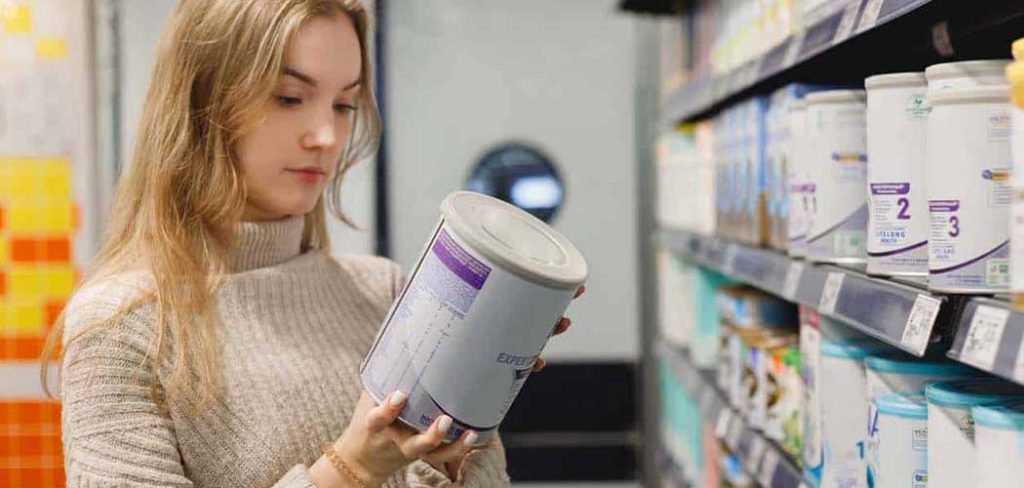Public health groups have welcomed government commitment to make Health Star Ratings mandatory if the food industry continues to drag its feet.
After a decade of inaction, health groups have praised news that food regulators will make Health Star Ratings compulsory if the industry fails to reach 70% voluntary uptake by November next year.
At the July Food Ministers Meeting, Assistant Minister for Health and Aged Care, Ged Kearney, met with state and territory food ministers to discuss priority food regulatory issues. This included a focus on improving infant and child nutrition.
Ministers expressed their disappointment in the uptake targets of the Health Star Ratings system. As a result, for the first time in 20 years regulatory requirements for infant formula will be modernised.
Under the updated regulations, misleading claims will be prohibited, and products must present nutritional and other information in a way which is easily understood.
“As a mum, grandmother, and nurse, I know that so many women can be stressed about the best way to feed their babies. We want this to change, that’s why we’re making it easier for parents to know what’s in their baby’s food and to make informed decisions on what to feed them,” said Minister Kearney.
Whilst breastfeeding should always be the first option to give babies the best start in life, Minister Kearney, also former ANMF Federal Secretary and an RN, acknowledged this isn’t always possible for everyone. “Mums need access to reliable information from health professionals on the proper use of formula and to trust the products on the shelf in front of them,” she said.
Breastfeeding advocates have long called for an end to exploitative strategies of infant formula marketing and for stronger regulation of the industry in Australia and abroad.

In a commentary published last year in The Lancet Western Pacific, a global network of breastfeeding advocates highlighted how widespread marketing and promotion of commercial milk formula influences feeding decisions and negatively impacts breastfeeding rates.
“Families have a right to make infant feeding decisions free from commercial influence,” one of the authors and Independent Breastfeeding Advocate, Nicole Jameson told the ANMJ. “The concept of choice is undermined by the unethical and exploitative marketing of infant formula and breast milk substitute products.”
Increasing concerns about toddler milk were also raised at the meeting with agreement by food ministers to further explore the issue. Around half of babies and young children in Australia and New Zealand consume commercial food such as pureed desserts, fruit and vegetables, snack bars and other infant food pouches.
Widespread uptake of Health Star Ratings is considered essential for shoppers to compare the nutritional value of different packaged foods quickly and easily.
Ministers agreed to Food Standards Australian and New Zealand (FSANZ) starting preparatory work on mandating the Health Star Rating system should industry not reach the agreed target of 70% uptake.
“Food ministers are putting industry on notice – we will be ready to mandate the system if voluntary uptake does not dramatically improve,” said Minister Kearney.
The Health Star Rating system is designed to help Australians cut through marketing spin to make healthier choices for themselves and their families, said VicHealth CEO Dr Sandro Demaio. “But the system can’t effectively inform consumers unless it’s mandatory across all product categories,” he said.
Major food companies have had 10 years to comply with their own voluntary targets and failed, Dr Demaio said.
When the Health Star Ratings were introduced in 2019, 40% of intended packaged foods carried a rating. Now just 32% of products carry a rating, far below targets set.
There was nothing in their performance to date that suggested industry could reach the 70% target by the end of 2025, said Dr Alexandra Jones, at The George Institute and Senior Lecturer in the Faculty of Medicine at UNSW Sydney.
“To achieve this, we’d need to see an about-turn from several large manufacturers who have so far resisted, as well as gain buy-in from hundreds of smaller companies. There are still thousands of low scoring products withholding this information from consumers.”
Food for Health Alliance research has found that three in four Australians want governments to mandate health stars being displayed on the front of all packaged food and drinks. “Australians deserve clear, transparent labels on the foods they’re buying for themselves and their families,” said Food for Health Alliance Executive Manager Jane Martin.
The commitment by the food ministers to mandate the system would help empower consumers to make more informed decisions for their health, she said.
More information is available in the communique. The next Food Ministers Meeting will be held in November 2024.








